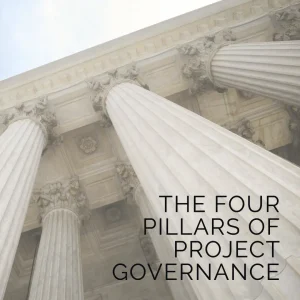PMP Certification: A Ticket to Better Job Opportunities?
Introduction
The Project Management Professional (PMP) certification has emerged as a significant credential for professionals seeking to advance their careers. The PMP certification, offered by the Project Management Institute (PMI), is recognized globally and signifies that an individual possesses the knowledge, skills, and experience necessary to lead and direct projects effectively. With over 470,000 PMP-certified professionals worldwide, this certification has become a hallmark of excellence in the field, allowing individuals to join a prestigious community of project management experts [2].
The growing demand for skilled project managers has led to an increase in the popularity of the PMP certification among job seekers. As organizations increasingly recognize the value of structured project management methodologies, professionals with PMP credentials are often viewed as more qualified candidates. This trend is reflected in hiring practices, where many employers prioritize or even require PMP certification for project management roles [11][12].
However, this raises an important question for aspiring project managers: Is obtaining a PMP certification truly worth it for enhancing job opportunities? This blog section will delve into the job trends and hiring practices surrounding PMP-certified project managers, providing insights into whether this certification can serve as a ticket to better job prospects in the ever-evolving project management landscape.
Understanding PMP Certification
The Project Management Professional (PMP) certification is a globally recognized credential that signifies a project manager’s expertise and commitment to the field. It is particularly valuable for job seekers aiming to enhance their career prospects in project management. Below are key points that provide background information on PMP certification, including its requirements, the significance of the PMBOK guide, and the credibility of the issuing organizations.
Requirements and Process to Obtain PMP Certification
To obtain PMP certification, candidates must meet specific educational and professional experience requirements:
- Educational Background: Candidates must have either a four-year degree along with at least three years of project management experience, or a high school diploma with five years of project management experience. Additionally, they must have completed 35 hours of project management education [12].
- Application Process: Candidates need to submit an application detailing their project management experience and education. This application is reviewed by the Project Management Institute (PMI), the organization that administers the PMP certification.
- Examination: After approval, candidates must pass a rigorous exam that consists of 180 questions covering various aspects of project management. The exam tests knowledge of project management processes, methodologies, and best practices [12].
Significance of the PMBOK Guide
The Project Management Body of Knowledge (PMBOK) Guide is a key resource for PMP certification candidates. It serves as a foundational text that outlines the standard practices and guidelines in project management. The significance of the PMBOK guide includes:
- Framework for Project Management: It provides a comprehensive framework that encompasses various project management processes, knowledge areas, and best practices essential for effective project management [12].
- Exam Preparation: The PMBOK guide is crucial for exam preparation, as the PMP exam is heavily based on its content. Familiarity with the guide helps candidates understand the terminology and concepts that will be tested [12].
Credibility of Issuing Organizations
The PMP certification is issued by the Project Management Institute (PMI), a non-profit organization founded by project management professionals. PMI is recognized globally for its commitment to advancing the project management profession. The credibility of PMI and the PMP certification is underscored by:
- Global Recognition: PMI is a leading authority in project management, and its certifications are respected worldwide. The PMP certification is often seen as a benchmark for project management excellence [10].
- Professional Development: PMI not only administers the certification but also provides resources for ongoing professional development, including networking opportunities, workshops, and access to industry research [12].
Current Job Trends in Project Management
The project management landscape is evolving rapidly, with significant implications for job seekers, particularly those considering the Project Management Professional (PMP) certification. Here’s an analysis of the current job market for project managers, focusing on job openings, the demand for certification, and the industries that are increasingly seeking PMP-certified professionals.
Job Openings for Project Managers
The demand for project managers is on the rise, with the U.S. Bureau of Labor Statistics projecting a 6% growth in project manager positions between now and 2032. This growth rate is notably higher than the national average of 3% across all industries, indicating a robust job market for project management professionals [10]. As organizations continue to invest in projects to drive growth and innovation, the need for skilled project managers is becoming more pronounced.
Demand for Certified Project Managers
Certification plays a crucial role in the hiring practices of many organizations. Statistics reveal that professionals with a PMP certification earn, on average, 35% higher salaries compared to their non-certified counterparts [5]. This significant salary differential underscores the value that employers place on certified project managers. Furthermore, a survey indicated that respondents with a PMP certification reported median salaries that were 33% higher than those without the certification [15].
The job market is increasingly favoring certified professionals, as many employers view the PMP certification as a mark of expertise and commitment to the field. This trend is particularly evident in competitive job markets where candidates with certifications are more likely to stand out.
Industries Seeking PMP-Certified Professionals
Several industries are actively seeking PMP-certified project managers, reflecting the certification’s growing importance across various sectors. Key industries include:
- Information Technology (IT): With the rapid advancement of technology and the need for effective project execution, IT companies are increasingly prioritizing PMP-certified professionals to manage complex projects.
- Construction: The construction industry relies heavily on project management to ensure timely and budget-compliant project delivery, making PMP certification highly desirable.
- Healthcare: As healthcare projects become more complex, the demand for certified project managers who can navigate regulatory requirements and manage diverse teams is on the rise.
- Finance: Financial institutions are also recognizing the value of project management in driving strategic initiatives, leading to a higher demand for certified professionals in this sector.
Impact of PMP Certification on Hiring Practices
In the competitive landscape of project management, the Project Management Professional (PMP) certification has emerged as a significant credential that influences hiring practices and job opportunities. This section delves into how PMP certification affects employer preferences, insights from hiring managers, and the salary disparities between certified and non-certified project managers.
Employer Preferences for PMP-Certified Candidates
Employers increasingly favor candidates with PMP certification due to the structured approach and standardized methodologies it represents. The certification is recognized globally and signifies that a project manager possesses the necessary experience, education, and skills to lead projects effectively. Companies prefer hiring certified project managers because they bring consistency and quality to project management practices, which is crucial for successful project delivery [6][13].
Moreover, in a job market where positions are becoming scarcer, having a PMP certification can set candidates apart from the competition. Hiring managers often view PMP certification as a benchmark for professionalism and competence, making it a valuable asset for job seekers in the field [4][5].
Insights from Hiring Managers on the Value of Certification
Hiring managers have expressed that PMP certification not only enhances a candidate’s resume but also indicates a commitment to the profession. The rigorous exam preparation required for PMP certification ensures that certified professionals are well-versed in project management principles, risk assessment, and leadership skills [5]. This comprehensive skill set is highly valued in today’s job market, where employers seek individuals who can navigate complex project environments and lead teams effectively.
Furthermore, many hiring managers report that PMP-certified candidates tend to have a deeper understanding of best practices and emerging technologies in project management, which can significantly benefit organizations [9]. This insight underscores the importance of certification in enhancing a project manager’s capabilities and marketability.
Salary Comparison: PMP-Certified vs. Non-Certified Project Managers
The financial benefits of obtaining PMP certification are notable. Data indicates that PMP-certified project managers earn significantly higher salaries compared to their non-certified counterparts. For instance, the average base pay for project managers with PMP certification exceeds $96,000, while those without certification earn considerably less [7][11]. This salary gap highlights the economic advantage of pursuing PMP certification, as it not only opens doors to new job opportunities but also leads to higher earning potential.
Benefits of Obtaining PMP Certification
Obtaining a Project Management Professional (PMP) certification can significantly enhance your career prospects. Here are some key benefits that highlight why pursuing this certification is a worthwhile investment for job seekers in the field.
Skills and Knowledge Gained
The PMP certification is recognized globally as a benchmark for project management expertise. It validates an individual’s skills and knowledge in managing projects effectively. To qualify for the PMP, candidates must demonstrate a solid foundation in project management principles, which includes:
- Structured Project Management: The certification equips professionals with the ability to manage projects in a structured and repeatable manner, ensuring that they can handle unexpected challenges effectively [6].
- Enhanced Project Management Skills: Through the preparation process, candidates gain insights into best practices and methodologies that improve their project planning and execution capabilities [9].
- Industry-Relevant Knowledge: The training and study required for the PMP certification provide a wealth of knowledge about current industry standards and practices, making certified professionals more adept in their roles [4].
Networking Opportunities
Becoming PMP-certified also opens doors to valuable networking opportunities. Membership in the Project Management Institute (PMI) offers:
- Access to a Global Community: PMI connects project management professionals from various sectors, allowing for the exchange of ideas, experiences, and best practices [5].
- Professional Development: Engaging with other PMP-certified professionals can lead to mentorship opportunities, collaboration on projects, and insights into job openings that may not be publicly advertised [10].
Career Advancement and Job Security
The PMP certification is not just a credential; it is a strategic asset that can lead to significant career advancement and job security. Here are some compelling reasons:
- Increased Earning Potential: According to PMI’s Earning Power: Project Management Salary Survey, PMP-certified professionals earn, on average, 16% to 20% more than their non-certified counterparts [2][8]. This financial incentive can make a substantial difference in long-term career earnings.
- Greater Job Opportunities: The demand for project management professionals is on the rise, with projections indicating that by 2027, employers will need nearly 88 million individuals in project management-oriented roles [14]. This growing demand translates to more job openings for those with PMP certification.
- Job Security: While no certification can guarantee job security, having a PMP certification can enhance your value to employers. Companies increasingly recognize the need for skilled project managers, which can provide a competitive edge in the job market[11].
Potential Downsides and Considerations
While the Project Management Professional (PMP) certification is widely recognized and can significantly enhance job prospects, it is essential to consider the potential downsides and factors that may influence its value in the job market. Here are some key points to consider:
- Costs Associated with PMP Certification: Obtaining PMP certification can be a substantial financial investment. The total cost, including training and exam fees, can reach up to NZ$4,500, depending on the chosen path and current exchange rates [2]. This financial burden can be a significant consideration for job seekers, especially those who may already be facing economic challenges.
- Time Investment for Preparation: Preparing for the PMP exam requires a considerable time commitment. Candidates must dedicate time to study the PMBOK Guide and other resources, often balancing this preparation with work and personal responsibilities. This time-consuming process can be daunting, particularly for those who may already have demanding jobs or family obligations [14].
- Experience vs. Certification: While PMP certification can enhance a resume, there is an ongoing debate about the value of experience compared to certification in hiring practices. Some employers prioritize hands-on experience and proven project management skills over formal certification. This perspective suggests that while PMP can be beneficial, it may not be the sole determining factor in hiring decisions [8][10]. In certain organizations, especially those that do not place a high value on formal project management training, practical experience may be viewed as more critical [11].
Real-World Success Stories
This section explores real-world success stories that illustrate the tangible benefits of PMP certification, showcasing testimonials, case studies, and insights from industry leaders.
Testimonials from PMP-Certified Project Managers
Many project managers have shared their positive experiences after obtaining PMP certification. Here are a few key takeaways:
- Increased Earning Potential: PMP-certified professionals often report substantial salary increases. On average, they earn 16% more than their non-certified counterparts, with some even seeing increases of up to 20% in their compensation packages [2][13]. This financial benefit is a strong motivator for many seeking certification.
- Enhanced Job Security: Certified project managers feel more secure in their roles. The certification not only validates their skills but also makes them more attractive to employers, leading to greater job stability [7].
- Broader Career Opportunities: Many PMP holders have successfully transitioned into higher-level positions or different industries. The structured approach to project management learned through certification equips them with the skills needed to manage complex projects effectively [9][10].
Case Studies Showcasing Career Advancements
Several case studies highlight the career advancements attributed to PMP certification:
- Case Study 1: Transitioning to Leadership Roles: A project manager in the IT sector obtained their PMP certification and subsequently moved from a project coordinator role to a senior project manager position within a year. This transition was facilitated by the skills and credibility gained through the certification, which allowed them to lead larger teams and more complex projects [9].
- Case Study 2: Industry Shift: Another PMP-certified professional transitioned from construction management to healthcare project management. The certification provided them with the necessary framework and methodologies to adapt to a new industry, demonstrating the versatility of the PMP credential [9].
- Case Study 3: Enhanced Project Efficiency: A project manager in a manufacturing company reported that after obtaining their PMP certification, they implemented new project management techniques that improved project delivery times by 30%. This efficiency not only benefited their team but also led to recognition from upper management and a promotion [5].
Industry Leaders Prioritizing Certification
Many organizations recognize the value of PMP certification in their hiring practices:
- Top Employers: Companies across various sectors, including technology, healthcare, and finance, prioritize hiring PMP-certified project managers. This preference stems from the enhanced project efficiency, superior risk management, and improved budget handling that certified professionals bring to the table [5][14].
- Hiring Trends: As the demand for skilled project managers continues to rise, with an estimated need for 88 million project management professionals by 2027, employers are increasingly looking for candidates with PMP certification to ensure they have the necessary skills to lead projects successfully [11].
- Credibility and Recognition: Organizations often view PMP certification as a benchmark for project management excellence. It enhances the credibility of project managers and signals to employers that they possess a standardized level of knowledge and expertise [6][15].
Conclusion
In the competitive landscape of project management, the value of a Project Management Professional (PMP) certification cannot be overstated. As job seekers evaluate their career paths, it is essential to recognize that while PMP certification is a significant asset, it should be considered alongside practical experience. Employers often look for a combination of both credentials and hands-on experience, as this blend demonstrates a candidate’s ability to apply theoretical knowledge in real-world scenarios.
Moreover, the decision to pursue PMP certification should align with individual career goals. For those aiming for higher positions or roles in larger projects, the certification can serve as a powerful differentiator, potentially leading to increased earning potential and greater respect within the industry. Data indicates that PMP-certified professionals in the U.S. earn approximately 44% more than their non-certified counterparts, highlighting the financial benefits of obtaining this credential [13].
As you contemplate your next steps in the project management field, consider the long-term benefits that PMP certification can offer. It not only enhances your professional credibility but also opens doors to a wider array of job opportunities. Therefore, it is advisable to explore the PMP certification further, assess its relevance to your career aspirations, and determine if it aligns with your professional development strategy. Taking this proactive approach can significantly impact your career trajectory in project management.
Find out more about Shaun Stoltz https://www.shaunstoltz.com/about/.
This post was written by an AI and reviewed/edited by a human.



